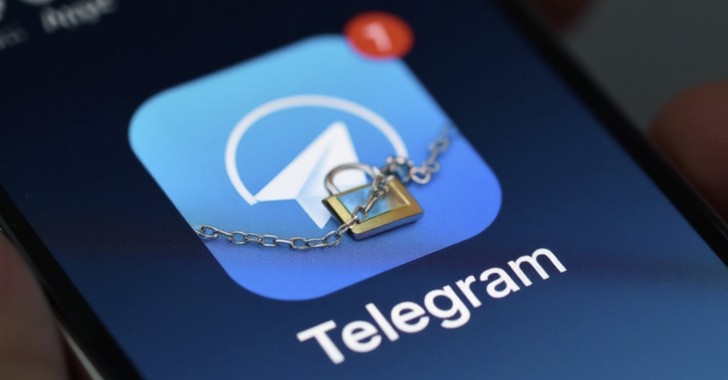In a decisive move aimed at bolstering cybersecurity, Ukraine has officially banned the use of Telegram, the popular encrypted messaging platform, on state-issued devices. This new regulation, effective immediately, underscores the growing concern within Ukrainian government circles about potential vulnerabilities in communication systems. The ban comes amid ongoing tensions with Russia, cybersecurity threats, and the need to safeguard sensitive government data.
The Decision to Ban Telegram
Ukraine’s decision to block the use of Telegram on government devices reflects the country’s determination to improve security standards and reduce risks associated with cyber espionage and data leaks. While Telegram has been widely used due to its encryption features, Ukrainian officials expressed concerns over the app’s safety in sensitive government communications.
The Ukrainian Security Service (SBU) cited that Telegram’s encryption practices could potentially be exploited by malicious actors. The app’s widespread use for communication, both personal and professional, has been highlighted as a risk to national security, especially considering Ukraine’s ongoing conflict with Russia. Ukrainian officials are now working towards implementing stricter cybersecurity protocols to ensure the safety and integrity of state communications.
Government Concerns Over Telegram’s Encryption
Telegram was developed by Russian-born entrepreneur Pavel Durov, which has further fueled concerns within Ukraine about the app’s potential risks. Although Telegram’s founders have long asserted their independence from Russian influence, its association with Russian origins remains a contentious issue in Ukraine, particularly with the geopolitical tensions that have escalated since Russia’s annexation of Crimea in 2014 and the ongoing war in eastern Ukraine.
The Ukrainian government is concerned that Telegram’s end-to-end encryption may not be fully secure. Despite its encryption features, Telegram uses a proprietary encryption protocol called MTProto, which has faced criticism from security experts. Some have argued that it is less transparent compared to widely accepted protocols like Signal Protocol or WhatsApp’s encryption, both of which are more heavily vetted.
Ukrainian authorities have voiced concerns that encrypted messages sent via Telegram could still be intercepted or compromised by third parties. The lack of transparency in the encryption method, coupled with Telegram’s origins, was a key factor in the government’s decision to restrict its use.
Increasing Cybersecurity Threats Amid the War
Since Russia’s full-scale invasion of Ukraine in February 2022, Ukraine has been facing a massive wave of cyberattacks, often attributed to Russian-backed hacking groups. These attacks have targeted critical infrastructure, government websites, and sensitive information. As part of their broader national defense strategy, Ukrainian authorities have been working on fortifying their cyber defenses to prevent espionage and sabotage.
The decision to ban Telegram aligns with Ukraine’s ongoing efforts to minimize exposure to potential cyber threats. Government officials are being urged to use more secure and vetted platforms for their communications. State employees have been instructed to remove Telegram from their work devices, including smartphones, tablets, and laptops, and to switch to other messaging services that have been vetted and approved by Ukrainian cybersecurity experts.
Alternative Communication Tools
In place of Telegram, Ukrainian officials are likely to turn to other encrypted messaging apps that have been deemed more secure. Some of the preferred alternatives include:
- Signal: Signal is an encrypted messaging app that uses the Signal Protocol for end-to-end encryption. It is widely regarded as one of the most secure messaging apps available, and it has been recommended by many cybersecurity experts.
- WhatsApp: Although owned by Meta (formerly Facebook), WhatsApp also employs the Signal Protocol for its end-to-end encryption, making it a relatively secure option for communication. However, some concerns remain about its connection to Meta and data privacy.
- Threema: This Switzerland-based messaging service is another alternative that offers encryption and is popular in Europe for its robust privacy protections. It is often used in government and enterprise sectors for secure communications.
These apps, among others, have been tested and approved by Ukraine’s cybersecurity authorities to ensure that state employees can communicate securely and without the risk of sensitive information being intercepted.
A Broader Crackdown on Potential Security Risks
Ukraine’s ban on Telegram is part of a broader effort to reduce potential security risks posed by apps and platforms with perceived vulnerabilities. As part of this initiative, the Ukrainian government has been conducting thorough security audits on the digital tools and platforms used by state employees.
Earlier in 2023, Ukraine also cracked down on certain apps and websites that were identified as posing potential risks to national security, especially those with links to Russian interests or insufficient encryption standards. The country’s Ministry of Digital Transformation has taken a leading role in these efforts, ensuring that all digital services used by government employees are vetted for security and reliability.
The Role of Telegram in Global Politics
This move by Ukraine is not the first time Telegram has come under scrutiny by governments. Several countries, including Russia, Iran, and China, have either restricted or heavily monitored the use of the app due to concerns over its role in political movements, protests, and opposition organizing.
In the case of Ukraine, while Telegram has been a useful tool for citizen communication, including during the Russian invasion when Ukrainians used the app to share information and updates, its association with potential vulnerabilities remains problematic. Government officials emphasize that while Telegram may still be suitable for public communication, it is too risky to use for official, sensitive, or classified information.
Telegram’s Response
As of now, Telegram has not issued an official statement on Ukraine’s ban of the app from state-issued devices. The company has repeatedly emphasized its commitment to user privacy and freedom of expression. Telegram’s developers have insisted that their encryption methods are secure and have denied any accusations of complicity with government surveillance.
However, given the geopolitical context and Ukraine’s heightened cybersecurity concerns, it is unlikely that the government will reverse its decision. Ukrainian officials have made it clear that the protection of sensitive government communications is their top priority.
Conclusion: Prioritizing Security in a Time of War
Ukraine’s ban on Telegram for state-issued devices is a clear signal of the country’s focus on strengthening cybersecurity, particularly as it faces unprecedented challenges amid its ongoing conflict with Russia. By removing potential vulnerabilities from communication channels, Ukraine aims to better protect sensitive information and safeguard its national security.
As the war continues, Ukraine’s government is likely to introduce more stringent cybersecurity measures and continue evaluating the digital tools used by state employees. The move to ban Telegram, while controversial, is seen as a necessary step in protecting the country from cyberattacks and espionage. For now, Ukrainian officials are prioritizing secure, transparent communication methods as they navigate the complex challenges posed by the war and its digital dimensions.





